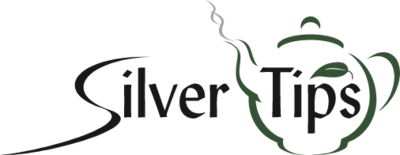 Every Tea Estate is required to have a dispensary. At Makaibari, this has been taken to the next level with the help of the CHAI project sponsored by TAZO & Mercy Corps (Collaboration for Hope and Advancement in India) and the dedication of a few key people. Sheila, pictured here, is one of them, a trained nurse and one of Makaibari's rising stars. She told me she had been in this position for the past 5 years and that the dispensary is open daily from 8 am to 4 pm. Prior to this, Sheila was a sorter in the factory. Patients are seen daily for conditions ranging from stomach ailments to fevers and colds. A systematic procedure is in place for innoculation of all infants against measles, diptheria and polio and pre and post natal care is a priority. Sheila is aided by two other trained nurses, Meera and Kavita. Meera is older and close to retirement while Kavita had been at the centre for just 10 months and used to be a tea plucker before. All three told me they really enjoyed helping people and enjoyed this job.
Every Tea Estate is required to have a dispensary. At Makaibari, this has been taken to the next level with the help of the CHAI project sponsored by TAZO & Mercy Corps (Collaboration for Hope and Advancement in India) and the dedication of a few key people. Sheila, pictured here, is one of them, a trained nurse and one of Makaibari's rising stars. She told me she had been in this position for the past 5 years and that the dispensary is open daily from 8 am to 4 pm. Prior to this, Sheila was a sorter in the factory. Patients are seen daily for conditions ranging from stomach ailments to fevers and colds. A systematic procedure is in place for innoculation of all infants against measles, diptheria and polio and pre and post natal care is a priority. Sheila is aided by two other trained nurses, Meera and Kavita. Meera is older and close to retirement while Kavita had been at the centre for just 10 months and used to be a tea plucker before. All three told me they really enjoyed helping people and enjoyed this job.
A doctor comes twice a week, on Thursday and Sunday. Thursday is homeopathic medicine, Sunday is Allopathic (western medicine). Most workers are off on Sundays, hence it's a good day for health care. One of the government Health Assistants happened to be there the day I was visiting and he noted that he had been coming to Makaibari for the past 11 years and that he could attest to the improvements at Makaibari and the obvious commitment to health care. I asked him to elaborate and he told me that previously, children used to be loaded on tractors and taken to the hospital for routine immunizations but now it was systematized and done on premise. He said, "Everything is here at Makaibari, water, electric, care".
Each Saturday is Home Visiting Day. Sheila and the other nurses visit all seven villages and schedule "Mother Meetings" in the afternoons where they teach hygiene and sanitation - that they should boil water for at least 20 minutes, wash hands with soap before eating, cover cooked food, be wary of outside food, dispose of garbage appropriately, that women should breast feed for 6 months.
A German government overseas outreach project (GTZ), provided training for 11 workers at the Kurseong hospital with emphasis on ante/post natal care, application of dressings, AIDS education, blood pressure and preventive care. Volunteers and visitors in the health care field contribute by developing manuals, educating children in the schools and sharing know-how. Here are images of Sheila at her desk and Kavita indicating the range of homeopathic medicines.


